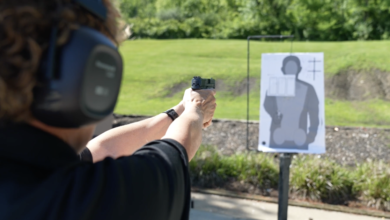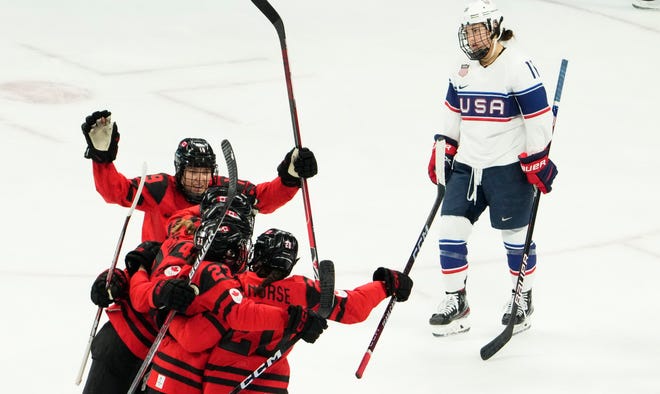
As she left the court after a comprehensive semifinal loss to Naomi Osaka, Serena Williams twirled around, took a long look at Rod Laver Arena and put her hand to her heart. It was the kind of slow, heartfelt goodbye that naturally leads to some questions when a tennis player is 39 years old and sees their rivals getting younger, faster, fitter and more confident.
After yet another loss late in a Grand Slam to a young superstar, each one a bit less competitive than the last, Williams is running out of options and running out of time to sneak in one more major title.
And she knows it.
If we’re being honest, Williams’ 6-3, 6-4 loss to Osaka in the semifinals of the Australian Open wasn’t a passing of the torch because that happened several Grand Slams ago. The important issue here is whether Williams still thinks she can win these tournaments, whether deep down she truly believes she can get through not only Osaka, but all the other great young players that you have to beat to win the titles.
Because if Serena doesn’t believe that anymore, what’s the point of being out there? That’s the dilemma every all-time great tennis player faces, playing a sport that is not only brutal on the body but requires immense commitment to remain at the highest level.
With 23 Grand Slam titles, she’s not in this to make quarterfinals or semifinals. She keeps going for the chance to win one of four tournaments every year. And when that is no longer a realistic possibility, the level of sacrifice it takes as the body ages no longer seems worth it.
That’s why the retirement questions, as uncomfortable as they may be, are pertinent after matches like this. And Williams didn’t exactly shut them down in her post-match press conference.
Asked about her long exit from the court and whether that might have signaled this was her last appearance at the Australian Open, Williams smiled and said: “I don’t know, if I ever say farewell, I wouldn’t tell anyone.”
But then, on a follow-up question about all the unforced errors she hit against Osaka, Williams took a sip of water and choked up, began crying, said “I’m done” and abruptly walked out of the room.
She knows. We all know.
That’s not to say that Williams can’t put together one more run. The French Open, with slower conditions and long rallies, will be difficult for her as it has been throughout her career. She’s been snake-bit at the U.S. Open, and Osaka’s dominance on hard courts makes the prospect of winning in New York that much tougher. Wimbledon, where she’s won seven times, produces conditions conducive for Serena to have success.
But that’s why the loss to Osaka will sting for a while. Williams came into this tournament healthy and fit, and the faster-than-usual court speed in Australia played to her advantage. The setup was right there, and Osaka was nervous and erratic enough early in the match for Williams to steal the first set. Then, who knows?
But Williams couldn’t take full advantage of that early opportunity, and Osaka proceeded to hit her off the court. Rally after rally, groundstroke after groundstroke, Osaka pinned Williams into defensive positions and then delivered body blows that made arguably the greatest player of all time look rushed and old and ineffective.
That’s the natural order of things. That’s what is supposed to happen when there’s a 16-year age gap between players at the highest level of the sport.

Williams has done incredible work to stave off the inevitable for as long as she can, to keep giving herself chances in Grand Slams long past the point when other players of her generation have fallen away and retired.
It used to be that 30 years old was a dividing line in tennis. Steffi Graf won her last Grand Slam at 29 and called it quits because her body was breaking down and the physical cost of coming back was no longer worth it. Chris Evert won her last major at 31, stopped making Slam finals with regularity, and got out at 34. Martina Navratilova made a last Wimbledon final at 37 and was basically done as a singles player after that.
So in that sense, Williams has completely changed the paradigm of what’s possible. And the way she played in Australia, she can probably continue to make the second week of Grand Slams for a few more years if she really wants to keep putting in the work.
But does she?
Only Williams knows that. Though she already owns the Open Era record, Grand Slam No. 24 remains tantalizing. But if the returns are diminishing and the sacrifice no longer seems worthwhile, you can understand why Thursday felt a little bit like goodbye.
Taking her at her word, Williams will never say out loud that 2021 is a farewell tour. But the way she reacted to this loss, let’s just say it’s time to savor every moment of seeing her on the court.
Source link









